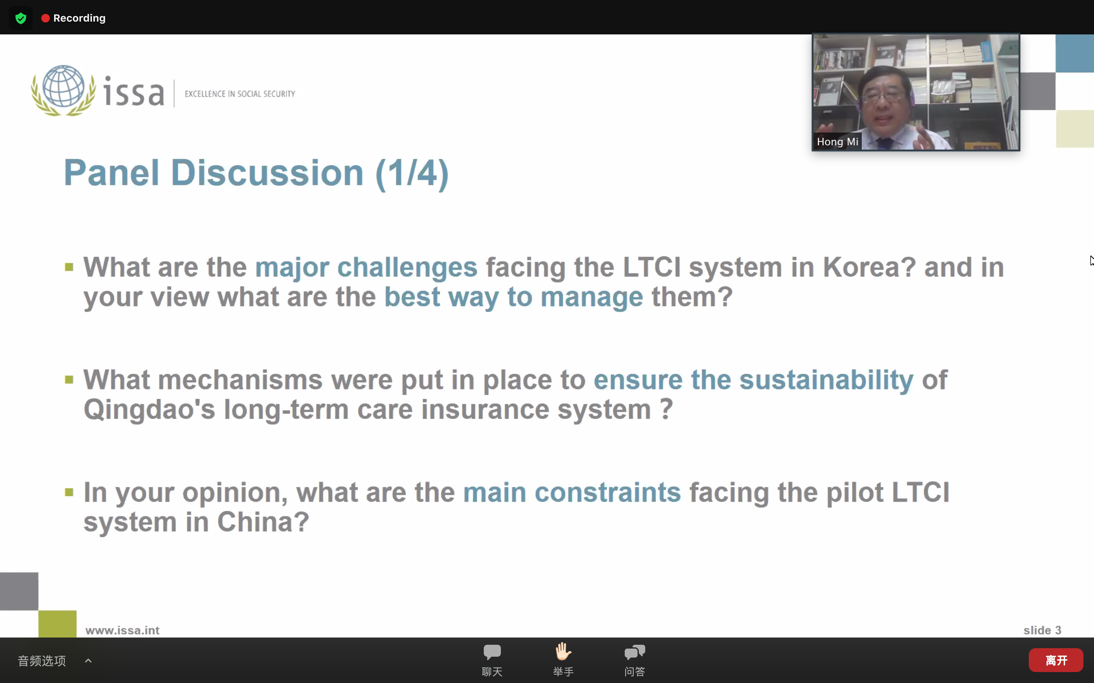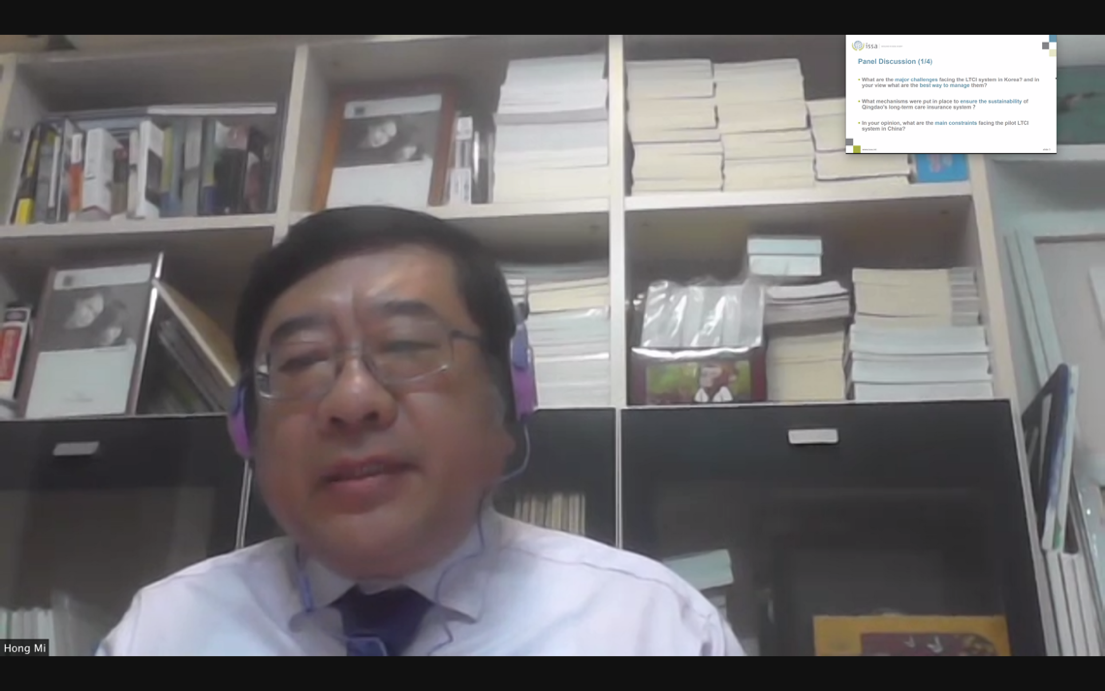In Asia, the percentage of the population aged 65+ is expected to increase by four-fold to reach 26 per cent in 2050 – with a commensurate increase in the need for long-term care (LTC). Typically, health systems are not prepared for this projected rise and most countries do not have a formal LTC system. Not long ago, some East Asian countries recognised the need and launched their first LTC programmes.
To be context-specific and people-centred, LTC programmes are sometimes designed as a pilot, and then modified during the implementation and scaling-up phases. Another way of programme design is national-wide and could be inspired by the experience from neighbouring countries. Either way, lessons learned from countries that have already embarked on LTC programmes are valuable.
This third webinar in the ISSA’s series on long-term care focused on concrete experiences from East Asian countries. It provided an overview on how the LTC needs are defined and envisaged, including the challenges faced and lessons learnt in the design of the national programmes.

Sanghee Park, Head Researcher, Health Insurance Research Institute (HIRI), National Health Insurance Service, from the Republic of Korea, gave a speech on Experience of LTC in Korea: Policy challenges and lessons learned. It is suggested that the long-term care insurance system in Korea should gradually expand its coverage, and strengthen the research on the financial sustainability of LTCI. The quality evaluation and care service should be improved in the future.
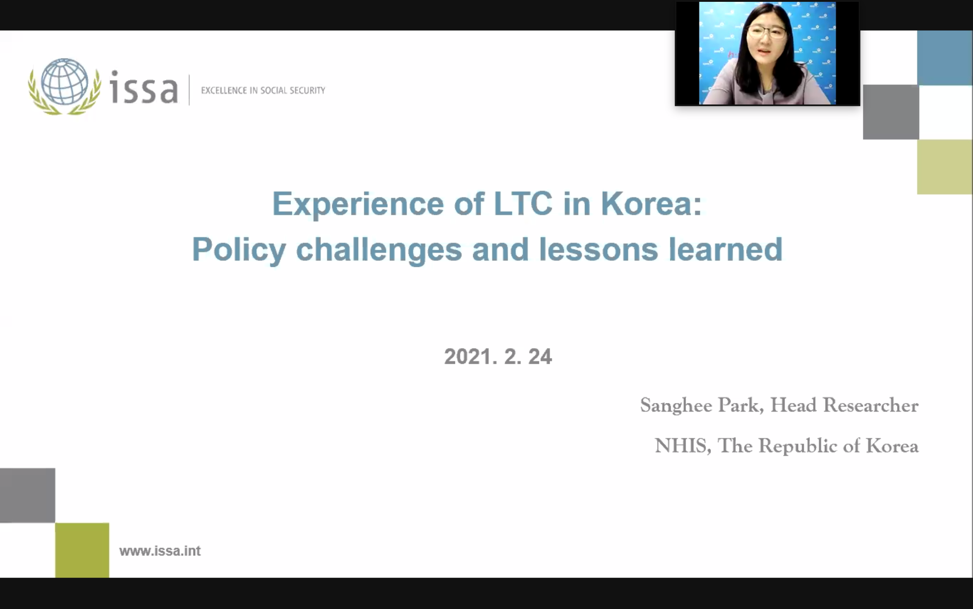
Twospeakersfrom China took part in the webinar. They are Yukun Zhu, Senior Technical Officer in Social Security, ISSA, and Hong Mi, Professor, Department of Social Security and Risk Management, School of Public Affairs, Zhejiang University, China. Mr. Yukun Zhu introduced the background on China’s pilot long-term care insurance according to his field work. Since 2016, China introduced the long care insurance pilot work. On the basis of summarizing the previous pilot experience, China will continue to expand the scope of the pilot, and perfect the multi-level long-term care insurance system from 2020.
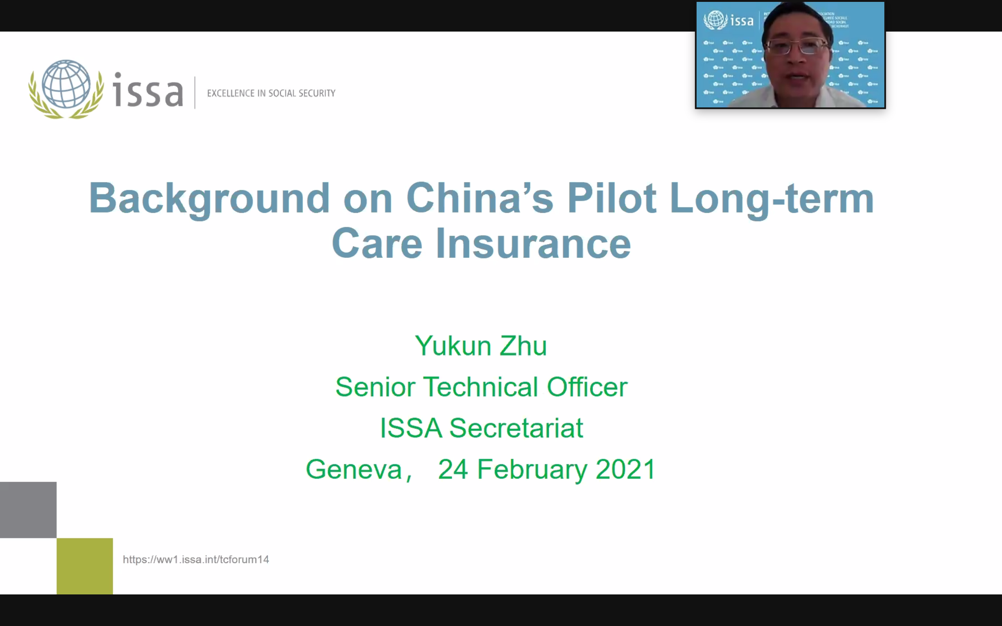
Professor Hong Mi, director of the Laboratory for Population Big Data and Policy Simulation at Zhejiang University, presented a research on LTCI in Qingdao city titled “Introduction to the Practice and Development of Long-term Care Insurance in Qingdao, China”. Prof. Hong Mi emphasized the pilot time of long-term care insurance should not take too much time. Although conducting the pilots would help the government accumulate experience and make better policies, promoting long-term care insurance nationwide as soon as possible would help to improve policy efficiency so that the elderly could benefit from it. Besides, the long trial period would strengthen the particularity and difference of the system in the pilot area, making it difficult to realize a nationwide system with universal characteristics. In addition, the Timebank in Qingdao also plays an important role in pilot practice, which helps volunteers store time in the app.
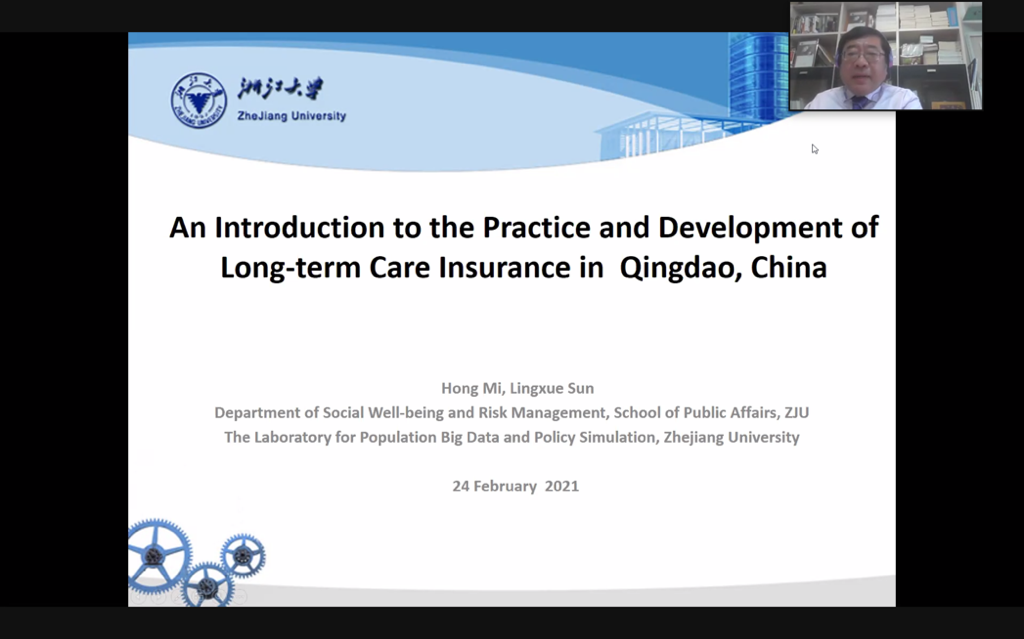

Ms. LingxueSun is doctoral student of Prof. Hong Mi. As the co-author of the research, she gave the presentation in detail by pointing out the effectiveness and strength of Qingdao’s LTC system. Qingdao combines formal care with informal care, and improves the role of home care and community care for the elderly in the long-term care system. Moreover, Qingdao has been trying hard to provide medical care and life care services for the elderly with dementia. For example, equipped with medical staff, social workers or senior nursing staff who have been trained in dementia care.
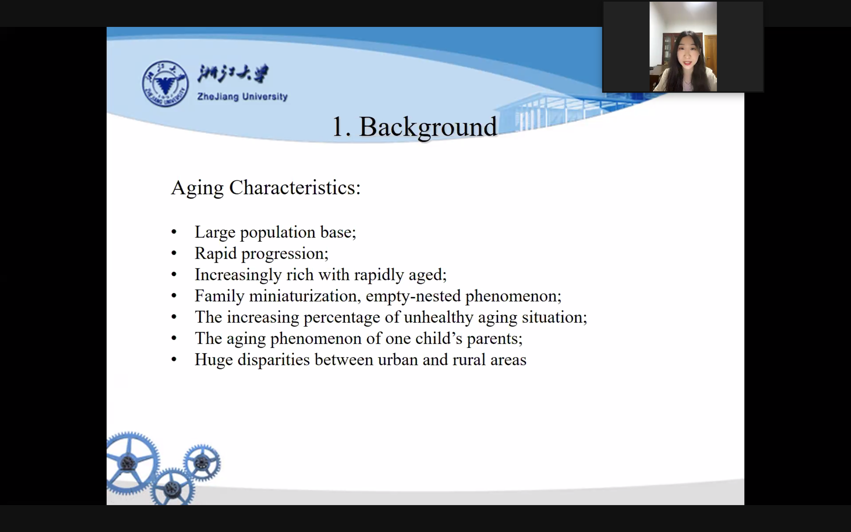

In the panel discussion, Prof. Hong Mi argued that the lesson from Qingdao LTCI is to highlight the implementation in rural areas. The rural development of LTCI should be in sync with the urban.In Qingdao, rural medical insurance is separated from the urban one. The vast number of rural elderly population lacks a sufficient fund to support their LTC programme. Thus, innovative financing of LTCI should be explored by drawing on experience from abroad as well as other pilot cities. There is a drastic need to boost the development of care resources in rural area, including the training of both formal and informal care staff, and improvement in care facilities and care services.
